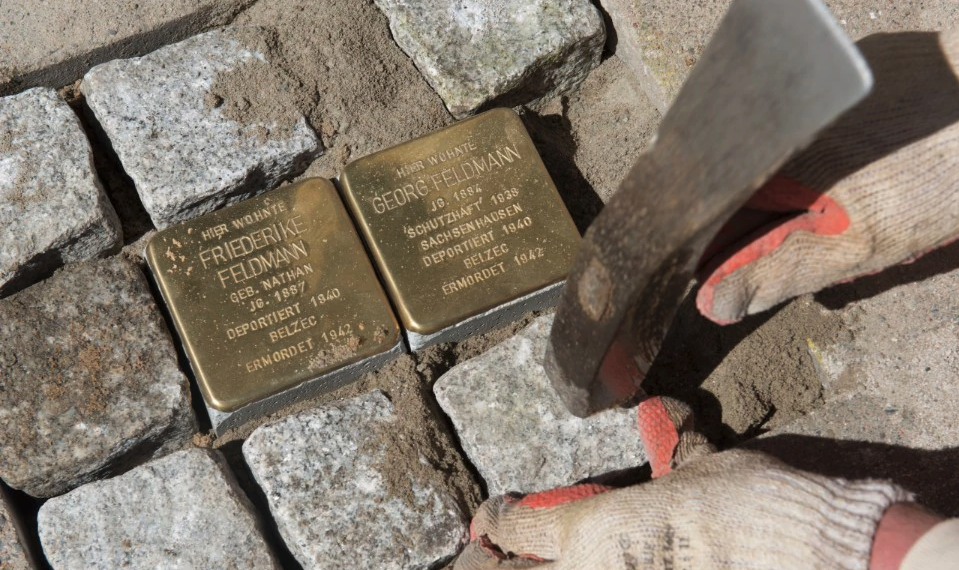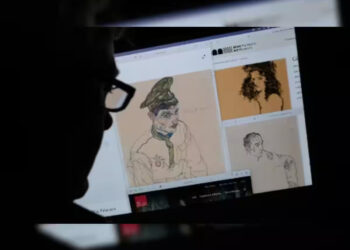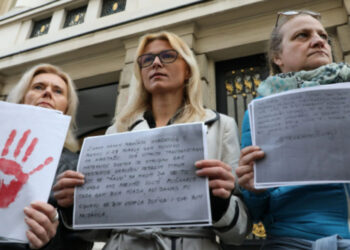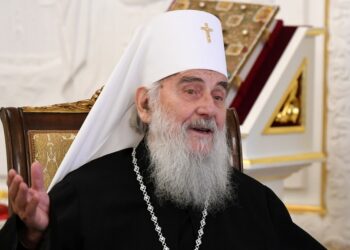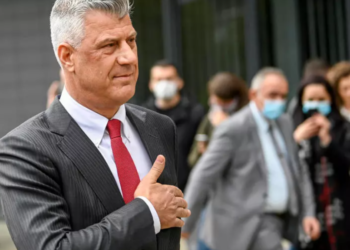My grandfather was murdered in the Holocaust in Serbia. Compounding my family’s loss is that we’ll never know if it was his grave in Belgrade that we visited.
For the last three and a half years, I’ve been trying to get stolpersteine, translated from German as “stumbling stones,” in front of the last place my grandfather lived: Solunska Uliza 8 in Belgrade. Stolpersteine are small stones placed on the street outside the last voluntary residence of Holocaust victims and survivors.
Over 70,000 stones have already been placed across Europe, making them the world’s largest decentralized memorial. A stone with my grandfather’s name on it would be a small victory against genocide and hatred.
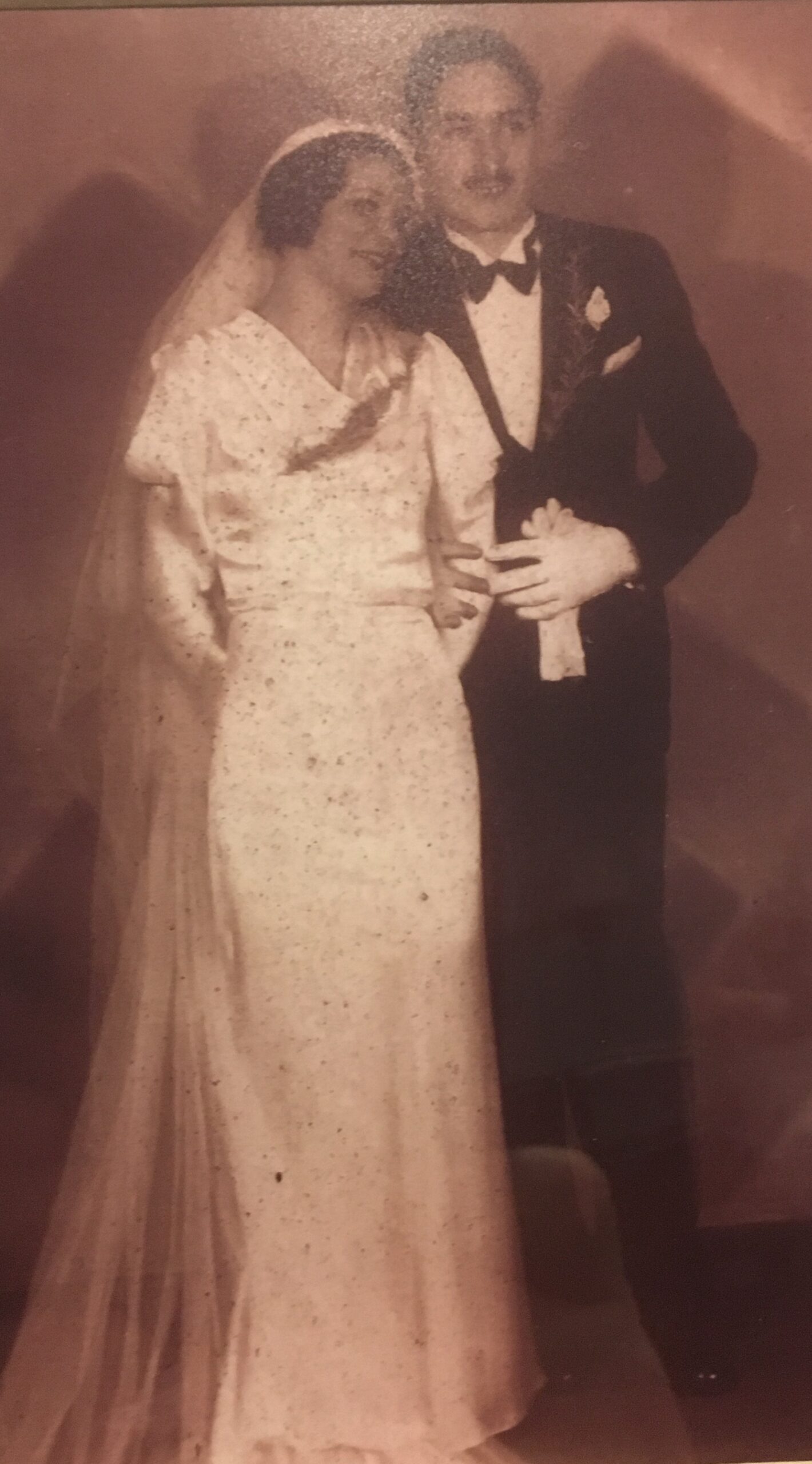
My father’s earliest memory is the April 1941 surprise Nazi bombing of Belgrade. He was born there in 1938, so he was not quite three years old when Adolf Hitler specifically targeted Dorchol, Belgrade’s Jewish neighborhood, where my father lived with his parents and uncles.
My father can recollect the whistling sound the bombs made and running to the shelter where other people were already sitting quietly. But he cannot recall returning home with his mother past bombed-out buildings and the dead and dying. He doesn’t remember his father. Forgetting can be protective.
Parents often share their childhood memories with their own children, so I grew up listening to my dad’s war stories. Hearing them from when I was little inoculated me against some of the horror. I didn’t recoil like a stranger often does when hearing them for the first time. Instead, I listened hard, understanding that my story started before I was born.
Belgrade in the 1940s
My father told me about fleeing the bombed-out city by walking down the railroad tracks with his mother, aunt, and cousins. Sometimes, his 14-year-old cousin carried him on his shoulders.
When they returned home, he looked out the window down onto the helmets of Nazi soldiers as they patrolled in pairs. I pictured him standing on tiptoes and peeking out from behind the curtain. His mother had told him not to, so it was a naughty thing to do.
My father often repeated to me what my grandmother told him: like all the Jewish men who were caught in the Nazi net, my grandfather was arrested and forced to work for the Germans. He slaved long hours on a crew rebuilding the city’s sewers that had been destroyed in the bombing.
At first, he was able to come home to sleep. My father remembers my grandmother’s screams the night he didn’t return. Pregnant with my aunt, she brought my grandfather food at Topovske Supe, the concentration camp on the outskirts of Belgrade where he was imprisoned. Then one day when she arrived, the gates were open and the camp was empty.
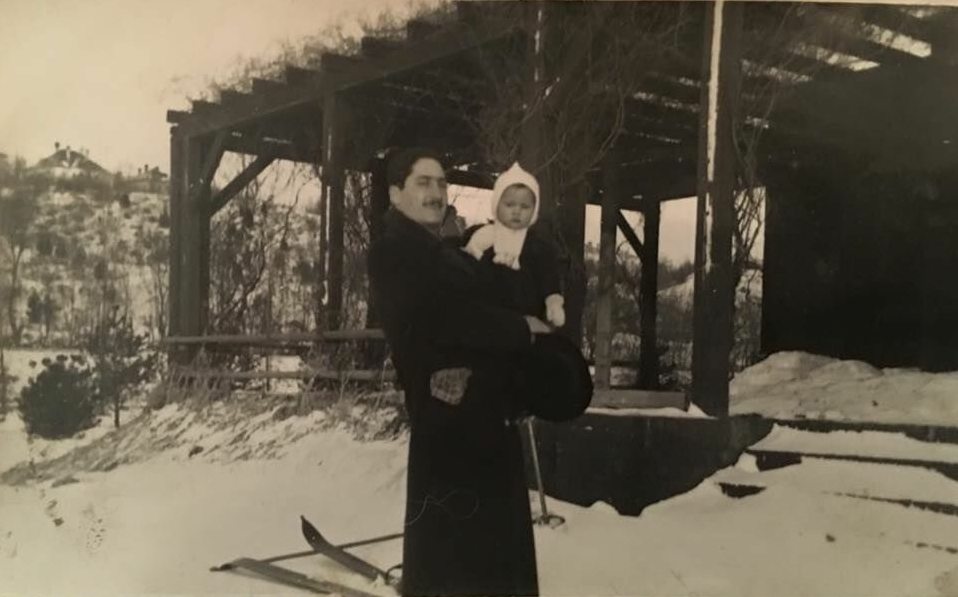
Holocaust in Serbia
In the story of the Holocaust in Serbia there are no trains and no gas chambers. As a child learning about Anne Frank and the Holocaust in Germany, Poland, Holland, and France, I couldn’t understand how the Serbian story, my family’s story, fit into the narrative.
Now, I understand that the Holocaust came faster, earlier, and more completely to Serbia than to Western Europe.
Belgrade was the first city to be declared Judenfrei: free of Jews. Most Jewish men were shot by the end of 1941, many as part of a Nazi policy in Serbia to murder 100 civilians for every one of their soldiers killed and 50 for every one injured.
Seven thousand Jewish women and children were imprisoned in Sajmiste, a camp few have ever heard of. Those who didn’t die of hunger, cold, and disease over the winter of 1941-42, were murdered in a mobile gas van, known as a Soul Stealer, as it drove along the streets of Belgrade.
The Nazis developed their gas van, a precursor to the gas chambers, because soldiers didn’t like shooting women and children. Ninety percent of Serbian Jews were murdered before Hitler came up with his Final Solution, his plan to eliminate all Jews. There were so few survivors and descendants that the Serbian tragedy is still largely untold.
Visiting Belgrade 76 Years Later
In 2017, my father, my daughter, and I visited Belgrade. We went to Topovske Supe where my grandfather was imprisoned. From our guide’s car we could see all of it: two long, low buildings crumbling into the ground and an overgrown, open yard. Our guide said Belgrade’s small Jewish community had raised money for a sign, but someone had stolen it.
From there we drove to Jajinci, the site where Jews, Roma, and rebellious Serbs were executed by firing squad and interred in an unmarked mass grave. This mass murder site sits on a grassy hill and looks like a park. Though it’s forbidden, I could imagine people sharing picnics, walking their dogs, and playing catch.
The day we visited we were alone except for a couple making out on a bench. Serbia doesn’t have a national Holocaust museum or memorial. There are no names of Nazi victims on a sign in Jajinca or anywhere else in Serbia yet. I’ll never know if my grandfather is buried there.
Stumbling Stones
More than 25 European countries already have stolpersteine. In July, they will be placed in Serbia, Bosnia, Kosovo, Croatia, and possibly Slovenia for the first time.
Unfortunately, although Belgrade is the center of Serbia’s Jewish community, it is not on the list to receive such stones. We have not yet received the necessary permission from the city’s mayor. If we don’t receive this approval soon, Belgrade will not be part of this historic installation.
I don’t know where my grandfather died or is buried, but I do know the last place he lived voluntarily. I hope to honor him where he lived with his family with a stumbling stone that bears his name: Alexander Brill.
Disclaimer: The views and opinions expressed here are those of the author and do not necessarily reflect the editorial position of The Globe Post.

